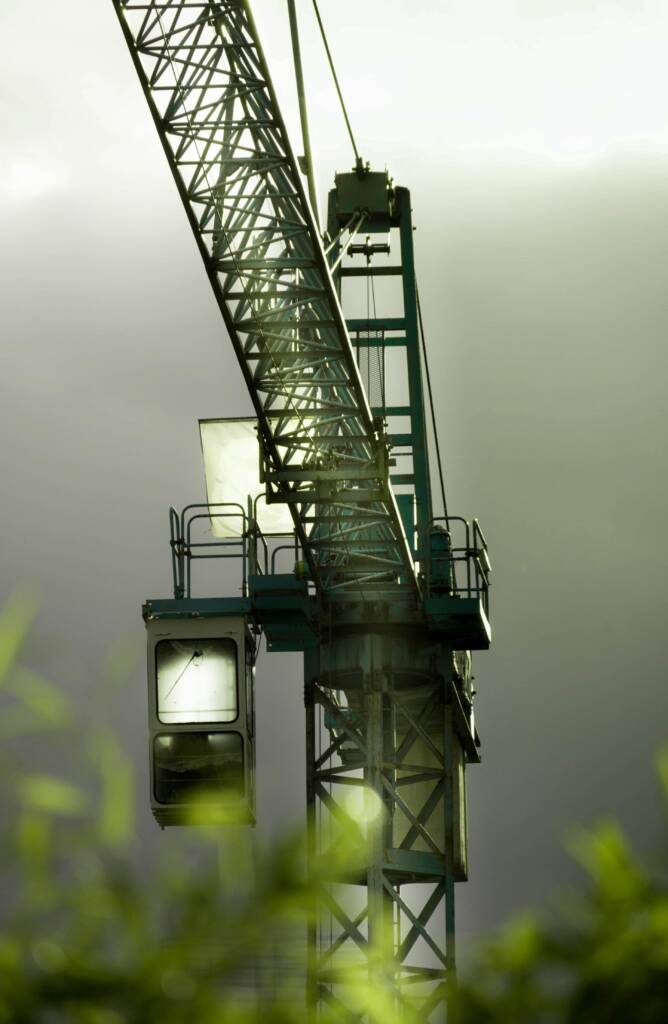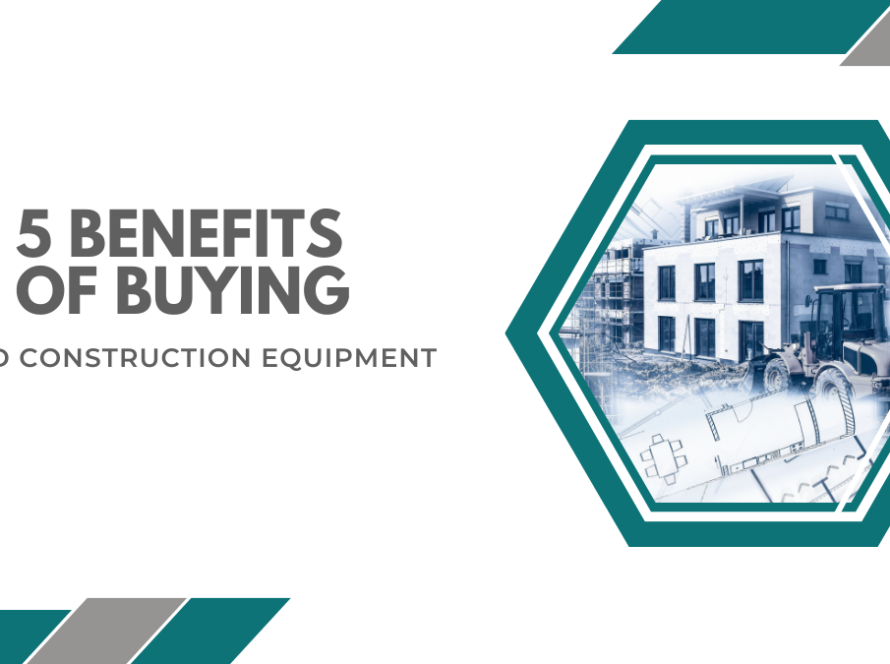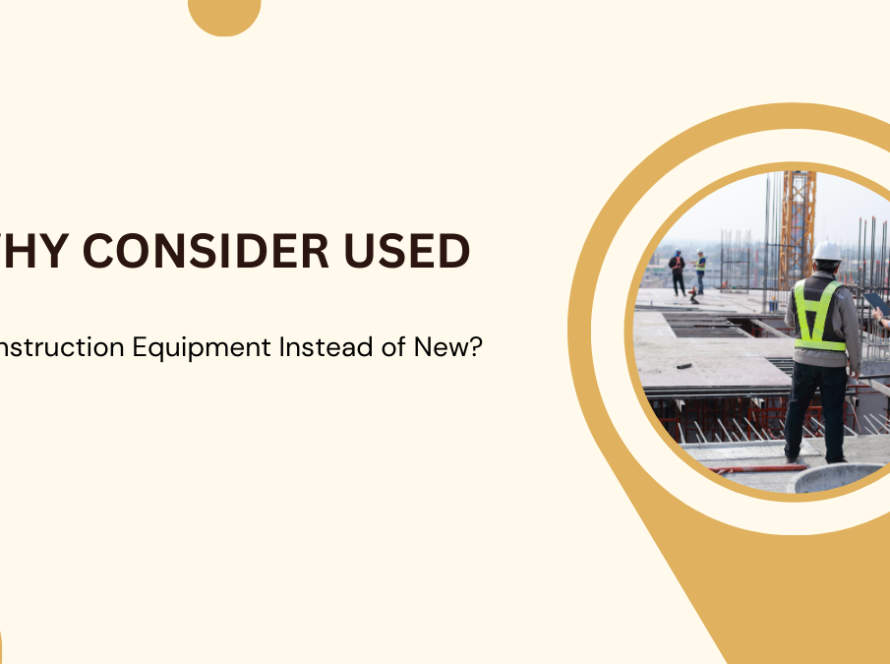Are you a construction enthusiast or a business owner pondering over the age-old problem of buying versus renting construction equipment and machinery? Well, you’re not alone! With countless options and hefty investments, making the right decision can be daunting.
In this blog post, we’ll dive deep into the world of construction equipment and machinery to help you weigh your choices effectively. So buckle up and prepare for some valuable insights that will empower you to make an informed decision that suits your needs like never before!
Why is it important to consider buying vs renting?
Whether to buy or rent construction equipment and machinery is a crucial decision every contractor, builder, or construction company must make. It involves weighing each option’s pros and cons and determining which suits your specific needs.
Buying Construction Equipment:
When it comes to purchasing construction equipment, there are a few key factors that need to be taken into consideration. Buying construction equipment can be a significant investment for any construction company, so it’s essential to carefully weigh the pros and cons before deciding.
One of the main advantages of buying construction equipment is that you have complete ownership and control over the machinery. This means you can use it whenever and wherever you need it without worrying about rental fees or availability. You also can customize and maintain the equipment according to your specific needs, ensuring optimal performance.
Advantages of owning your equipment
Owning your equipment can have many advantages for construction business owners. This section will discuss some key benefits of owning your construction equipment.
- Cost Savings:
One of the most significant advantages of owning your equipment is cost savings. While renting may seem like a cheaper option initially, renting can add up significantly in the long run. Owning your equipment eliminates the need to pay rental fees and can save on transportation costs. Additionally, having your equipment on-site can avoid delays or downtime due to unavailability or malfunctioning rented equipment. - Convenience and Flexibility:
Another advantage of owning your equipment is its convenience and flexibility. With owned equipment, you have complete control over its availability and usage. You are not dependent on rental companies’ schedules or terms and conditions for machinery use. This allows you to plan and execute projects more efficiently without any external factors affecting timelines. - Customization:
When purchasing construction equipment, you can customize it according to your specific needs and preferences. This means you can choose features that align with your project requirements and tailor them accordingly. This level of customization is not possible when renting, as you have limited options from rental companies.
Factors to consider before purchasing
Several factors must be carefully considered When buying and renting construction equipment and machinery. Making the right decision can significantly impact your project’s budget, timeline, and overall success. This section will discuss the key factors you should consider before purchasing or renting.

- Project Duration:
The first factor to consider is the duration of your project. If you have a short-term project with a fixed timeline, renting may be the better option as it allows you to use the equipment for as long as needed. On the other hand, purchasing may be more cost-effective in the long run if you have ongoing or long-term projects. - Frequency of Use:
Another crucial factor to consider is how often you will need the equipment. For occasional or one-time use, renting can save you from investing in expensive machinery that may sit idle once your project is completed. However, if you foresee frequent use of specific equipment in multiple projects, buying would make more financial sense. - Equipment Maintenance:
Purchasing construction equipment means taking on additional responsibilities, such as maintenance and repair costs. You must ensure that proper maintenance procedures are followed regularly to keep your equipment in top working condition and avoid costly breakdowns during critical stages of your project.
Cost analysis for buying equipment
Cost analysis for buying equipment can be complex, but it is a crucial step to consider before making any major purchasing decisions. As with any investment, weighing the costs and benefits of buying equipment against other options, such as renting or leasing, is crucial.
The initial cost of purchasing construction equipment can be high and should not be taken lightly. Depending on the type and size of machinery needed, prices can range from tens of thousands to even millions of dollars. It is essential to thoroughly research and compare prices from different suppliers to ensure you get the best deal possible.
Long-term maintenance and ownership costs
When buying or renting construction equipment and machinery, long-term maintenance and ownership costs are essential. These costs can significantly impact the overall financial feasibility of a project, making it crucial for contractors and construction companies to evaluate them carefully.
When you buy equipment, you become responsible for all maintenance and repair costs associated with keeping it operational. This includes routine maintenance, unexpected breakdowns, and replacing any worn-out parts. These expenses can increase quickly, mainly if the equipment is used frequently or in harsh conditions. Furthermore, as the equipment ages, its maintenance costs may increase due to wear and tear.
Renting Construction Equipment
When completing construction projects, having the right equipment and machinery is crucial. However, many companies and individuals may not have the resources or need to purchase these expensive tools outright. This is where renting construction equipment comes in as a viable option.
Renting construction equipment involves paying a fee to use specific machinery for a designated period. Depending on the project’s scope and needs, this can range from a few hours to several months.
One of the main advantages of renting construction equipment is its cost-effectiveness. Purchasing heavy machinery can be a significant investment that may not make financial sense for short-term projects or those with limited budgets. Renting allows for more flexibility in budgeting, as the rental fee is typically lower than buying new or used equipment.
Benefits of renting equipment
Renting construction equipment and machinery has become a popular option for many businesses in the industry. It provides companies access to high-quality equipment without the significant initial investment of purchasing it outright. This section will discuss the benefits of renting equipment and why it may be the best choice for your business.
- Cost-Effective Solution
One of the most significant advantages of renting equipment is that it is a cost-effective solution for businesses. The upfront costs of purchasing heavy machinery can be substantial, and smaller companies may not have the financial resources to make such a significant investment. Renting equipment allows businesses to access top-of-the-line machinery at a fraction of the cost, making it an attractive option for those on a budget.
Additionally, renting eliminates maintenance and repair costs, which can quickly add up when owning equipment. Most rental companies are responsible for maintaining inventory, saving businesses time and money on upkeep expenses.
- Flexibility and Variety
Another benefit of renting construction equipment is its flexibility and variety. Construction projects often require different types of machinery depending on the task. By renting instead of buying, companies can access a wide range of machines suitable for various functions without investing in multiple pieces of expensive equipment.
Situations where renting may be a better option than buying
There are many factors to consider when deciding whether to rent or buy construction equipment and machinery. While buying may seem like the most logical choice for long-term projects, there are certain situations where renting may be a better option.
- Limited budget: If you have limited funds for your project, renting equipment can be more cost-effective. Purchasing heavy machinery can require a significant upfront investment, whereas renting allows you to spread out the costs over time.
- Short-term projects: If your project has a shorter timeline, it may not make sense to invest in buying equipment that will only be used for a limited time. Renting allows you to have access to the specific equipment you need without committing to its long-term ownership.
- Specialized or seasonal equipment needs: Some projects may require specialized or seasonal equipment that is not needed on a regular basis. In these cases, it may be more practical and cost-efficient to rent rather than buy the equipment outright.

